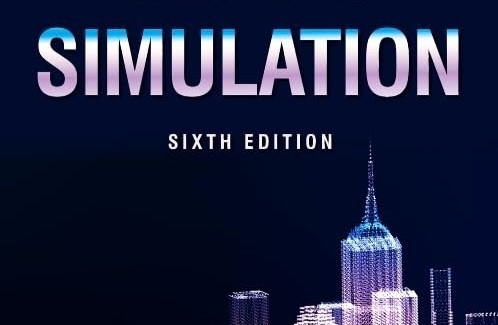Kursen genomförs som 6 seminarier och en projektuppgift. Under seminarier skall deltagarna muntligen, vid tavlan, presentera lösningar på hemuppgifter. Inför seminarier skall kursbokens kapitel vara instuderade vilken kan göras med stöd av de videobaserade föreläsningar som finns tillgängliga.
Kursen avslutas med en individuell simuleringsuppgift som skall redovisas muntligt och skriftligt.
